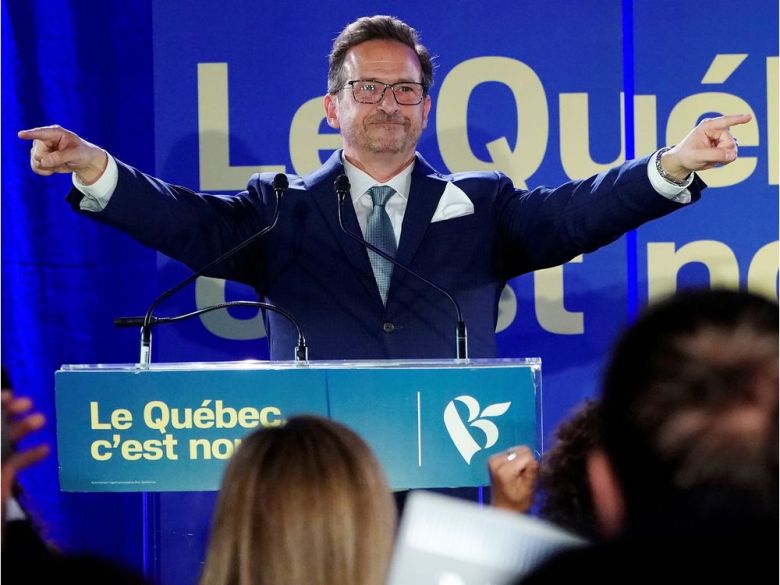There’s no anti-Alberta character Jason Kenney won’t attack. But sometimes, he should cool it.
The premier is giving Bloc Quebecois leader Yves-Francois Blanchet too much oxygen by snapping back at his provocative anti-oil statements.
Blanchet is the boss of a Quebec-only, separatist federal party.
He doesn’t run a government. Unlike earlier Bloc bosses, he’s not even the federal Opposition leader.
The Trudeau Liberal minority won’t depend on his support. The NDP has enough votes for that.

And the fact remains that nearly 70 per cent of Canadians, in voting either Conservative or Liberal, accepted the Trans Mountain pipeline.
Federal Conservative Opposition Leader Andrew Scheer effectively blasted Blanchet, saying it’s both insulting and disingenuous to say the West is faking a unity crisis.
Good response. Let’s leave it at that.
There’s not much Blanchet can do to hurt Alberta. Except talk. He’s very good at it.
By bluster alone, Blanchet has raised the Bloc from nothing in January, when he was the sole candidate for the unwanted party leadership, to 32 seats and provocative national notice.
Often he seems to do it on Alberta’s back.
Asked if he’d support western demands for more autonomy, Blanchet said:
“If they were attempting to create a green state in Western Canada, I might be tempted to help them.
“If they are trying to create an oil state in Western Canada, they cannot expect any help from us.”
Blanchet had just met with the prime minister. Effortlessly, he stole the stage.
Kenney went off like a skyrocket.
“If you are so opposed to the energy that we produced in Alberta, then why are you so keen on taking the money generated by the oilfield worker in this province and across Western Canada.”
“You cannot have your cake and eat it too,” he said. And then, mangling metaphors: “pick a lane.”

By now it was out in the schoolyard, the combatants circling each other like a pair of dusty kids.
“You know what?” Blanchet spluttered, “I like my cake and I will do what I think about it.
“I think he can, as far as I’m concerned, have his own oil and do whatever he wants with it.”
That was just too childish for a response.
Kenney’s points about Quebec reflect Alberta thinking. They crank up the existing anger.
But that mood can hardly get any hotter. What’s the use?
Kenney should brush off Blanchet as a separatist crank who’s poking a stick into Canadian divisions. That’s only the truth.
But at the same time, we can’t forget that Blanchet reflects some genuine Quebec sentiment. It’s a serious and growing problem.
Quebec and Alberta have often had quiet alliances around provincial powers and mistrust of Ottawa.
Separatist leaders, from Rene Levesque to Lucien Bouchard and Gilles Duceppe, have usually been polite to the West.
The understanding broke down with the bitter dispute over the Energy East pipeline.

More than 80 Montreal-area mayors and officials came out against it.
The then-mayor of Montreal, Denis Coderre, a former federal Liberal minister, was publicly ecstatic about the cancellation of the project.
Albertans couldn’t comprehend why Quebecers prefer to keep shipping oil from foreign countries down the St. Lawrence, when all of Eastern Canada could have cheap, reliable oil from Alberta.
There came a complete rift in understanding. Blanchet now sees Canada as a “petro-state” dominated by favouritism to the oil and gas industry.
Quebec, as a “green” country, should not be linked with this petro-state.
Goofy as that sounds in a province where the industry feels flattened instead of favoured, many Quebecers agree.
They would rather buy foreign oil, which can easily be diminished as demand drops, rather than establish a new permanent link with the West (half of Quebec’s daily oil, of course, already comes from Western Canada.)
The starkest expression of this view came when federal Green Leader Elizabeth May said foreign oil imports should be banned and Canadian oil used in Eastern Canada until the industry is phased out.
The leader of her provincial Quebec party rebelled. Alex Tyrrell said he could not “in good conscience” support the ban on foreign oil when the key goal is to shut down the oilsands.
“It’s trying to talk about having jobs in the tarsands, when really we should be talking about how to shut down the tarsands as quickly as possible,” he told the CBC. “That oil needs to stay in the ground.”
The Canadian oil idea promptly disappeared from May’s election platform. Such is the lure of the Quebec vote.
Blanchet is now exploiting his new standing in the most divisive and provocative way.
But on the national stage, he remains a powerless peanut. Shell once and then discard.
Don Braid’s column appears regularly in the Calgary Herald.
Twitter: @DonBraid
Facebook: Don Braid Politics





























